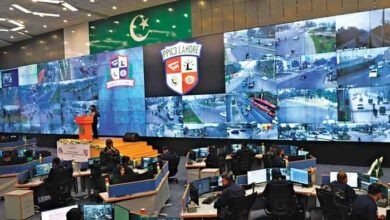For decades, we believed that degree guarantees success. Parents sacrificed their savings, sending children to schools and universities, hoping a degree would secure respect and stability. In the early decades of Pakistan, this belief was true. A graduate could easily secure a government job, a bank post, or a teaching position. Education was seen as the ladder to upward mobility.
Today, that belief is under serious question. Thousands of degree holders walk out of universities each year, only to face unemployment and frustration. According to the Pakistan Bureau of Statistics (2024), youth unemployment stands at around 11 percent, much higher than the national average. The sad reality is that even master’s and M.Phil. Graduates are applying for clerical jobs. This reflects a widening gap between our education system and the demands of the job market.
The world itself has changed. In the 21st century, economies are shifting from knowledge-based to skill-based. A World Economic Forum (2023) report warned that nearly half of today’s in-demand skills will change within five years due to Artificial Intelligence, automation, and digitalization. Yet our universities still teach outdated syllabi, with little focus on creativity, problem-solving, or innovation. Instead of preparing students for tomorrow, we are locking them in the past.
The skill gap is Pakistan’s biggest crisis. Employers often complain that graduates cannot draft a proper email, think critically, or present ideas effectively. A Higher Education Commission (HEC) survey (2022) showed that more than 60 percent of employers believe our universities fail to produce job-ready graduates. This explains why short private training courses in IT, freelancing, and digital marketing are producing more employable youth than mainstream universities, though such courses are often too costly for many students.
Another issue is job market saturation. Each year, thousands graduate in fields like Political Science, Business Administration, and International Relations, yet the economy does not create enough jobs for them. The Asian Development Bank (2023) estimated that Pakistan needs over a million new jobs annually, but far fewer are available. This has weakened the value of degrees; today, a bachelor’s or master’s certificate alone is not enough without specialized skills.
Technology and global competition are making things even tougher. Software and AI tools are replacing traditional roles in banks, factories, and even schools. The International Labour Organization has warned that millions of jobs in South Asia are at risk due to automation. Meanwhile, Pakistani graduates now compete not only with each other but with freelancers from India, Bangladesh, and Eastern Europe. In such a global marketplace, skills, efficiency, and innovation matter far more than certificates.
But this does not mean Pakistan’s education story is without hope. There are clear ways forward.
First, curriculum reforms are essential. Universities must update courses to include digital literacy, critical thinking, communication, and entrepreneurship. Pakistan can learn from countries like Germany, where vocational and technical education runs parallel to formal degrees, ensuring that graduates leave with both theory and hands-on ability.
Second, entrepreneurship promotion must become a priority. Instead of producing job-seekers, our education system should encourage job-creators. The success of Pakistan’s IT freelancers, who generated over $2.6 billion in remittances in 2023, proves that youth can create opportunities with the right skills and environment. Startups and freelancing should be normalized, not seen as “last resorts.”
Third, bridging the digital divide is urgent. Millions of rural students lack access to reliable internet and modern facilities, which makes them fall behind urban youth. Public-private partnerships, affordable training centers, and investment in technology infrastructure can help bring equity in education.
Fourth, character building should remain central. Skills and degrees matter, but so do discipline, ethics, resilience, and adaptability. These values help young people face challenges without losing hope, especially in times of uncertainty.
Finally, global comparisons offer inspiration. While our system struggles, countries like Germany prove the value of vocational education, and freelancers in Bangladesh and India show how digital skills can transform economies. If Pakistan strengthens its IT sector, improves curricula, and invests in training, our youth too can compete globally.
The reality is clear: degrees alone no longer guarantee success. If we continue with the current model, Pakistan will produce educated but hopeless graduates. But if we reform curricula, promote entrepreneurship, bridge the digital gap, and build strong values, education can once again become a true ladder of progress. In the 21st century, success belongs not to the most educated on paper, but to the most skilled, adaptable, and innovative.







